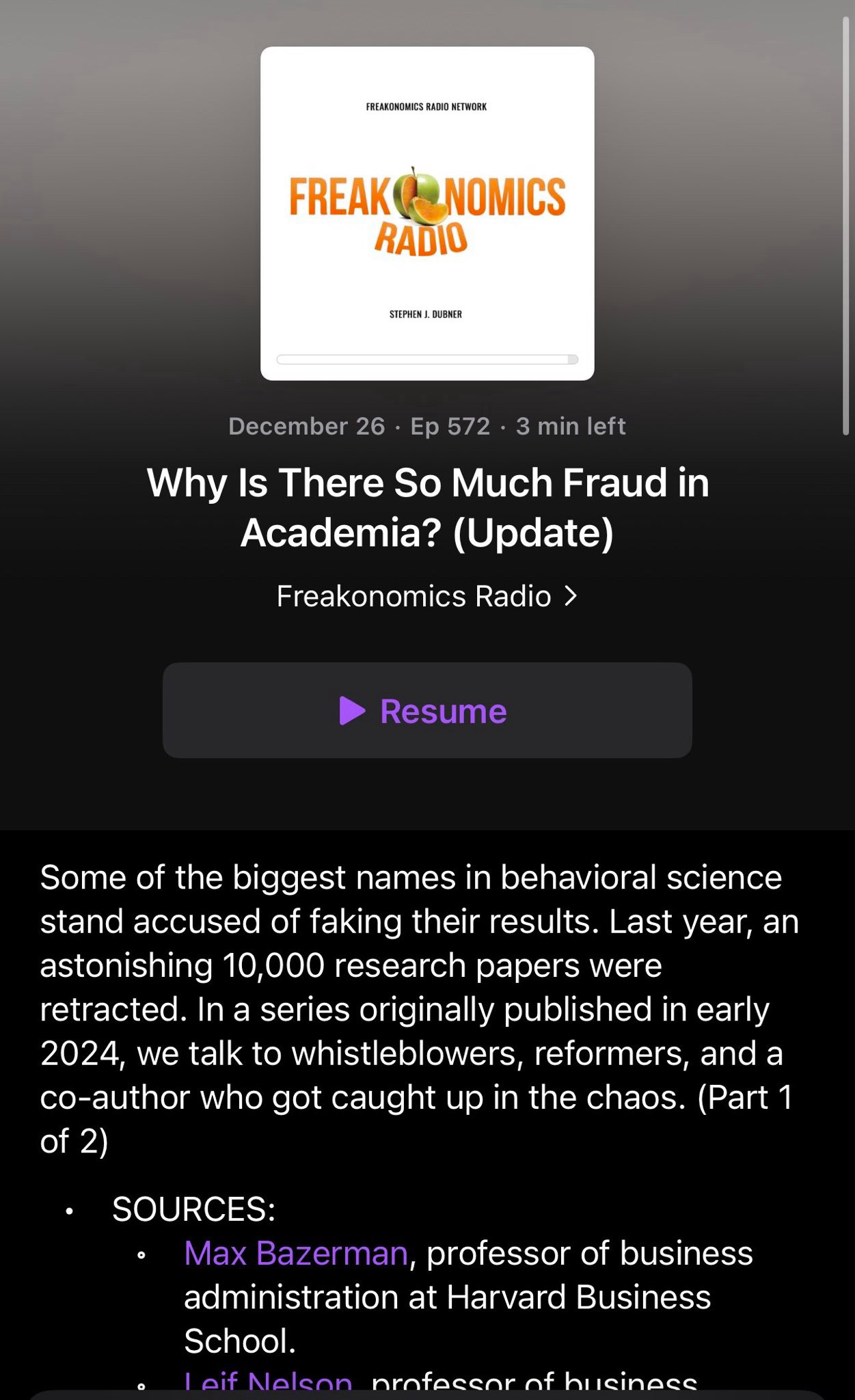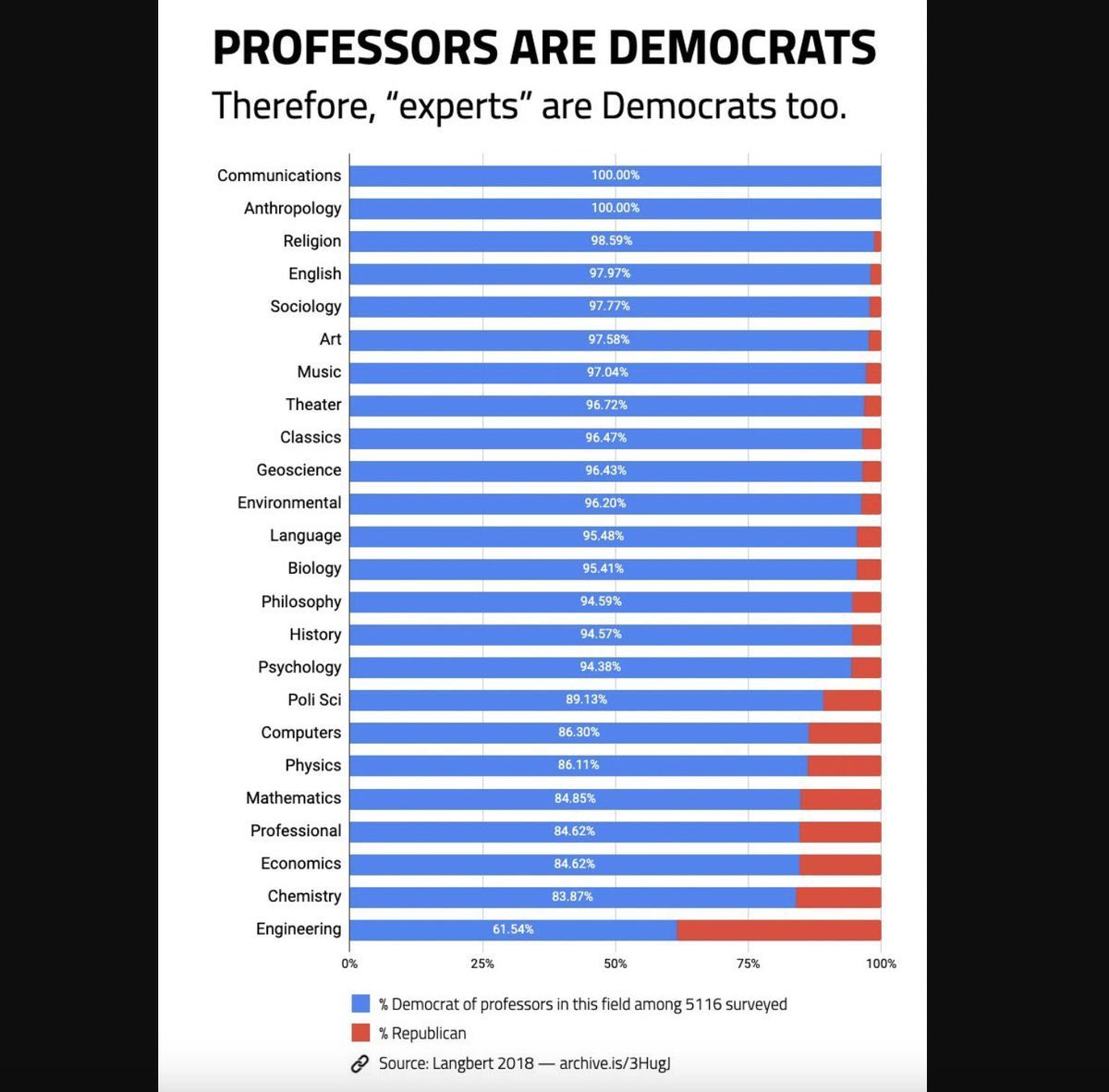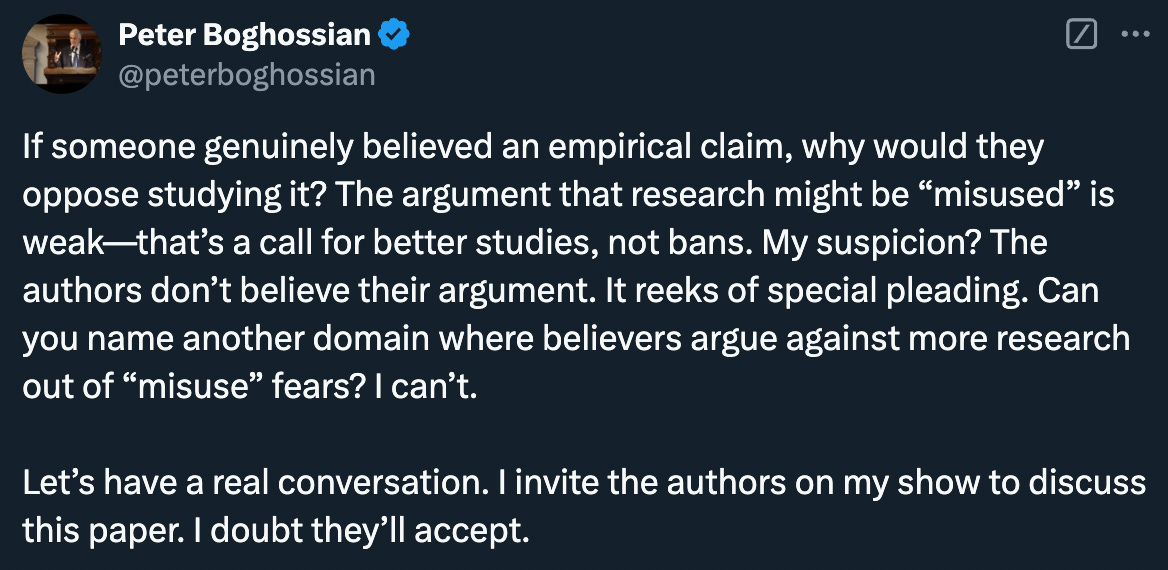Academia is a fraud factory. Last year, 10,000 research papers were retracted—and those are just the ones that got caught. Entire lines of literature are fabricated out of whole cloth. Plagiarism is rampant. Universities are protecting and hiding fraud—they’re keeping serial plagiarists on the payroll. They don’t even fire Pretendians (people pretending to be Native Americans who hold positions of authority), despite their lip service, land acknowledgments, and ostensible deference to Native Americans’ lived experiences.
A curious person might wonder: Why? How could this happen? Why would anyone hide corruption or deny it or look the other way—especially when it undermines the legitimacy of their disciplines and the academy itself?
There are plenty of reasons. Here are a few:
Ideology. Many academics don’t see research as a way to discover facts about an objectively knowable world. Instead, they view research as a tool to create the world they want—a world that’s just, fair, equitable, and free of oppression. Their goal isn’t to uncover the truth; it’s to craft a narrative that aligns with their vision of justice. To make this happen, they describe how they think things should be and cherry-pick methods to support those conclusions (Action Research).
When this mindset takes over, research goals shift. It’s no longer about trying to falsify claims; research is about verifying narratives to fit preexisting beliefs of how the world should operate.

Career Advancement. Not all fraud is ideological—sometimes it’s just about climbing the ladder. This kind of corruption is especially common in the soft and hard sciences, where data fabrication boosts publication records, improves reputations, and increases grant money. Academic fraud, by its nature, is difficult to discover. If I had to guess, I’d estimate that around 15% of papers are flat-out fraudulent (data fabrication), and another 25% are less obvious but still bogus (e.g., p-hacking). Although these estimates could be low given the replication crises in various fields.
Midwits. This isn’t merely ignorance—it’s midwittery. Many academics are not particularly intelligent; they are, at best, middling intellects. We think of academia as a haven for brilliant minds, but it’s full of people with average intelligence inflated by credentials. Midwits cluster heavily in the humanities and thin out in the hard sciences. They are not capable of understanding complex problems (like why falsification matters more than affirmation) because they lack intellectual horsepower.
Moral Echo Chambers. Academia is a giant moral echo chamber. For all the talk about the indispensable importance of diversity, the academy is dominated by identitarian leftists. For them, morally unfashionable conclusions aren’t just wrong—they’re heretical. Disagree and you’re not merely mistaken—you are evil.
Entire areas of inquiry are off-limits because some academics think they shouldn’t be studied. And yet, these same people insist their claims are true. How do they know? They don’t. They can’t. But questioning them makes you the bad guy.
Reputation Preservation. Fraud doesn’t just undermine individual academics—it threatens entire institutions. If the public knew how widespread the rot really is, the entire system would likely collapse. So, they protect their own. Whistleblowers are silenced. Critics are dismissed. And the fraud? It never ceases.
The rot in academia is not an accident. It is the inevitable outcome of a system built on groupthink, careerism, and warped moral compasses. The academy once claimed to be a bastion of free thought and inquiry, but it has become a fortress of conformity, where the truth takes a backseat to narratives, prestige, and power. Until fraud is met with consequences and intellectual diversity is embraced, academia will remain what it has become: A factory of lies, wrapped in the illusion of legitimacy, and churning out the very propaganda it pretends to oppose.






My close friend has a close friend who's a Lit prof who seems to teach more about Marxism than about Literature and from seeing her work the purpose of the modern professoriate seems to be:
First, to master an esoteric guild language that makes your prose unreadable and your thoughts inscrutable, which is meant entirely as a signal to other people in the guild that you have mastered their jargon, beliefs and etiquette, that you are an official guild member;
and then to use your position in this guild to pursue and express your political and moral goals, usually through bigotry archaeology, the denunciation of some writer, artist or school for its crimes of oppression, and the positing of utopian political standards that always end in a "heads I win, tails you lose" Kafka trap where the theorist professor stands at the apex of morality and all who came before her are smeared with guilt and shame.
It is definitely much more of a priesthood than a professoriate!
The one thing that's left out of all this are the students and their needs, the obligation to actually teach the subject at hand and maybe spark a flame of love or inspiration in young minds. But the students are really just props or audience members—the entire purpose of the modern professoriate are their career and social needs, everything else is either secondary or irrelevant.
When my l/O Psychology class and I conducted a survey about hostile environments and academic freedom, the powers that be (i.e., the dean and president), were so angry, they proclaimed the survey to be dangerous and forbid me from using it even during my dismissal hearing:
The Baffling 'Bull' Behind Title IX — Minding The Campus